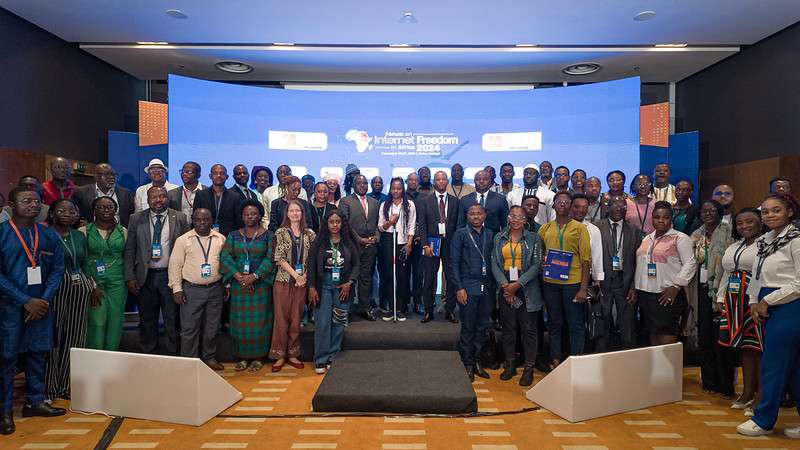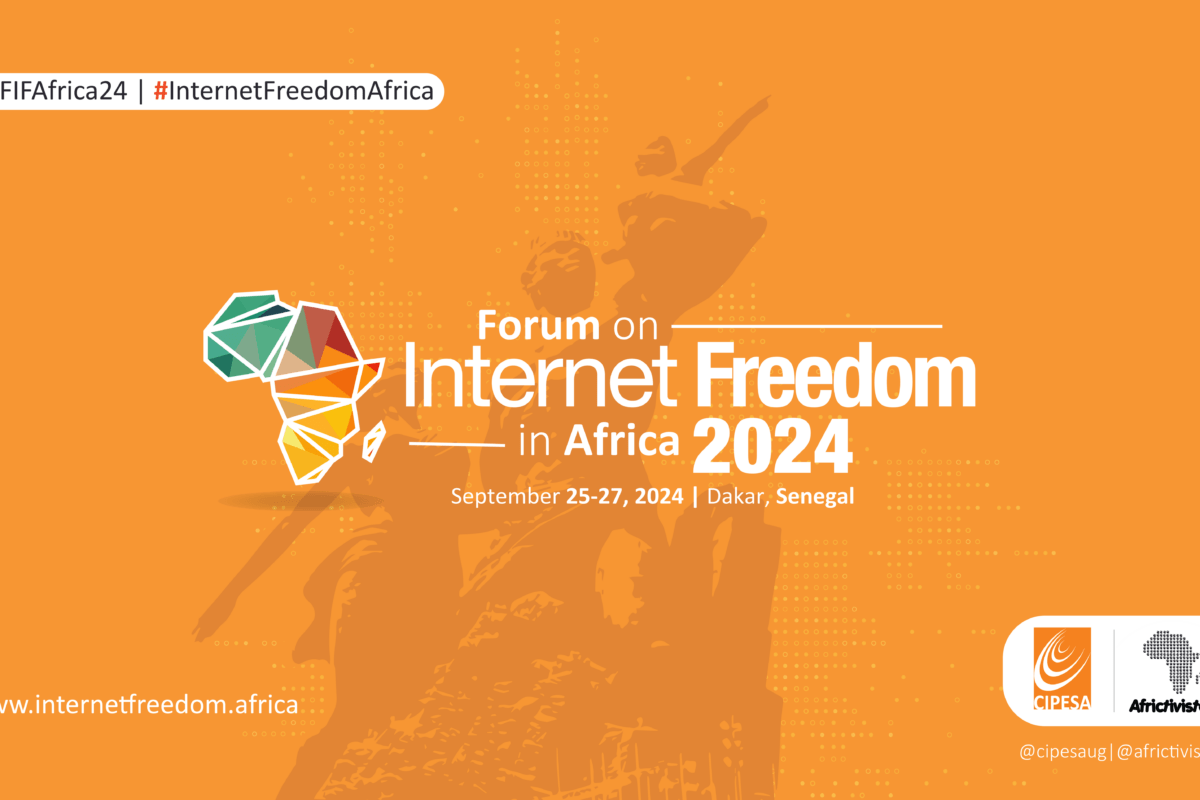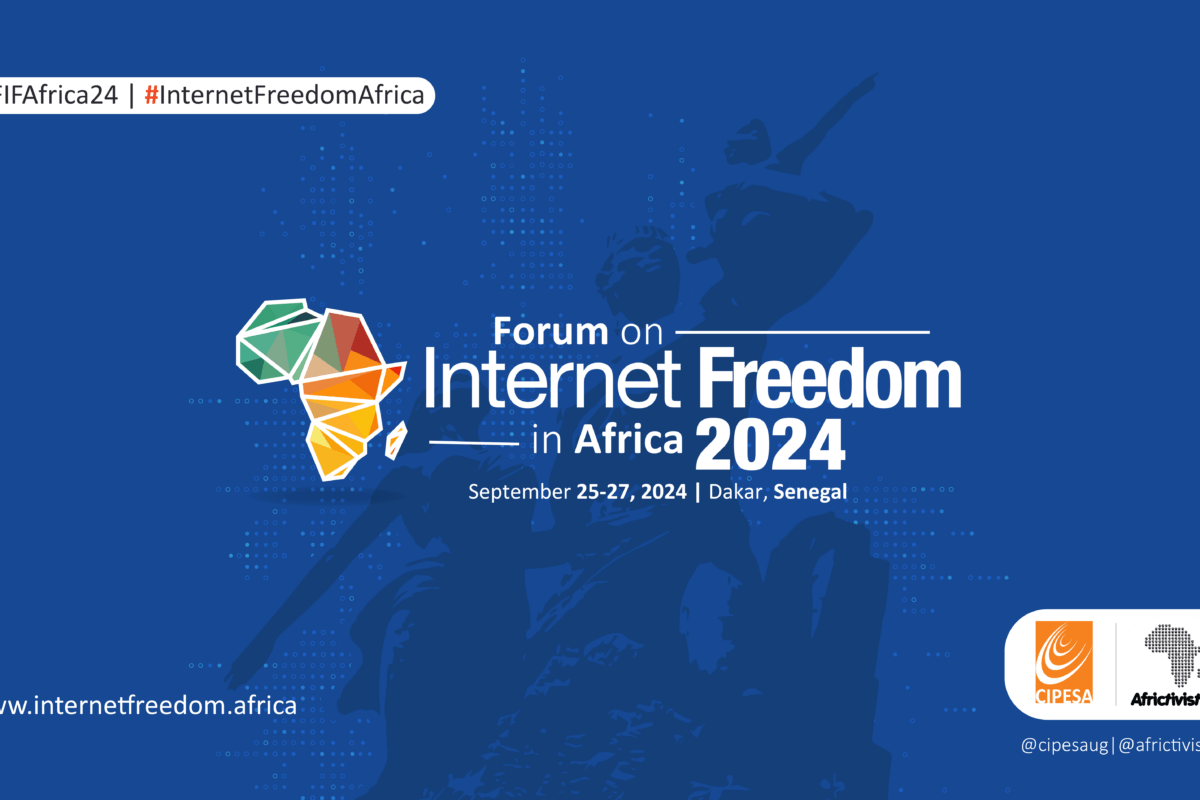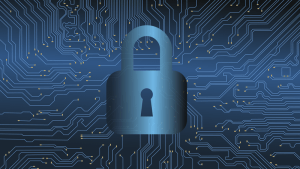FIFAfrica24 |
On September 26, 2024, the Forum on Internet Freedom in Africa (FIFAfrica24) kicked off with over 420 delegates from across Africa and beyond. FIFAfrica24, now in its 11th year serves as a platform for concerted efforts to advance digital rights in Africa and to promote the multi-stakeholder model of Internet governance. It places internet freedom directly on the agendas of key stakeholders, including policymakers, journalists, activists, global platform operators, telecommunications companies, regulators, human rights defenders, academia, and law enforcement.
Co-hosted by the Collaboration on International ICT Policy for East and Southern Africa (CIPESA) and AfricTivistes, the main Forum was preceded by two days of pre-events, including workshops and training sessions designed to equip participants with critical skills and foster meaningful dialogue on digital rights and internet governance.
This year’s forum marks a historic first, as it is the first time FIFAfrica is hosted in a Francophone African country, during what has been dubbed the Year of Democracy. Previous editions have been held in Uganda, South Africa, Ghana, Ethiopia, Zambia, and Tanzania.
In his opening remarks, Dr. Wairagala Wakabi, Executive Director of CIPESA, emphasised Senegal’s importance as host. “Senegal’s progressive approach to data governance, its commitment to artificial intelligence, and its strides in developing a comprehensive National Data Strategy make it the ideal location for this year’s discussions,” said Dr. Wakabi. He added that, the Forum, which started as a conversation has “evolved into a powerful movement. A movement that transcends borders and languages, and one that actively shapes the future of digital democracy on this continent.”
Speaking on behalf of Senegal’s government, Serigne Abdou Lahatt Sylla, head of the Office of Digital Services and Uses, emphasised the country’s efforts aimed at protecting digital rights and stated, “Senegal is honored to host FIFAfrica24, reaffirming our commitment to advancing digital rights and democracy. As we continue to develop our technological capabilities, protecting the rights of our citizens remains our priority,” Sylla remarked.
Cheikh Fall, President of AfricTivistes, highlighted the ongoing challenge of digital access and use in Africa. He emphasized the urgent need for the continent to develop its own digital frameworks, stating, “Africa’s greatest challenge today is that it is experiencing the effects of all three industrial revolutions that shaped the world. We must create homegrown technologies and frameworks that address the continent’s unique needs and aspirations.”
Tanzanian Member of Parliament and Chair of the African Parliamentary Network on Internet Governance (APNIG), Neema Lugangira, commended CIPESA’s efforts, affirming that African legislators are committed to supporting inclusive internet access and safeguarding digital rights. “Legislators across the continent are committed to fostering inclusive internet access and supporting CIPESA’s initiatives to advance digital freedoms,” Lugangira said.
FIFAfrica has commemorated the International Day for Universal Access to Information (IDUAI) since it was proclaimed by the UNESCO General Conference in 2015, following the adoption of 38 C/Resolution 57proclamation. In this regard, Michel Elvis Kenmoei, UNESCO’s West Africa Adviser for Communication and Information, stated, “Digital rights are fundamental human rights. As the world becomes more connected, we must ensure freedom of expression, privacy, and access to information for all.”
Kenmoei went on to reiterate the call for the respect of access to information in a keynote panel discussion that also featured Conor Sanchez, a Stakeholder Engagement Manager, Content Policy at Meta, Aisha Dabo, Programs Coordinator at Africtivistes, Sarah Kekeli Akunor, of the Ghana Blind Union, and activist Catherine M’seteka affiliated with the International Domestic Workers Federation (IDWF). The panel called for more inclusion of marginalised communities while there was also the recognition that platforms are working at enhancing efforts aimed at ensuring that they do not infringe on user rights and freedoms.
With discussions spanning a wide array of digital rights issues, FIFAfrica24 is set to continue as a critical platform for shaping the future of internet freedom and digital democracy in Africa. As such, the event will conclude with the launch of the annual State of Internet Freedom in Africa report which will focus on the theme of technology and elections.
Join the Conversation
Be sure to stay connected, follow the debates and discussions, and contribute your thoughts and insights to the #InternetFreedomAfrica community. Follow @cipesaug and FIFAfrica24 co-host @AfricTivistes for updates!
Queries
Send queries to [email protected]




